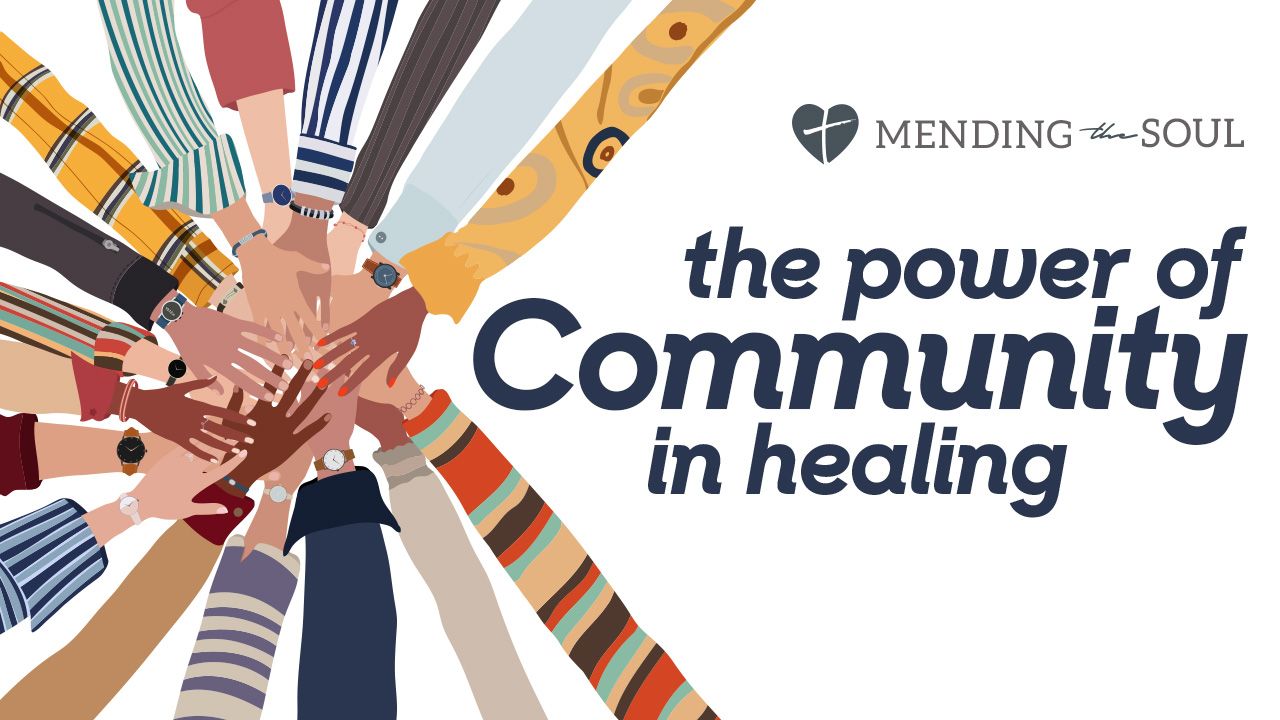The Power of Community in Healing

Dr. Vivek Murthy, the U.S. Surgeon General, recently shared a powerful message emphasizing the critical need for fostering community in a world where isolation and loneliness are rampant. In his parting advisory, he highlighted a "triad of success" for creating healthier communities: fostering emotional connection, creating spaces for belonging, and encouraging shared purpose. These three pillars offer a roadmap for addressing the growing mental health crisis and rebuilding the fractured social fabric many of us experience today. At Mending the Soul (MTS), our model uniquely aligns with this triad, making it a transformative tool for healing and growth.
Let's explore how MTS resonates with each of these pillars and provides a practical framework for individuals and communities to experience holistic healing.

1. Emotional Connection: Building Bridges of Authenticity
Dr. Murthy highlights emotional connection as the foundation of community well-being. Humans thrive when they feel seen, heard, and understood. Yet, in our fast-paced, digitally-driven world, many of us struggle to form deep, meaningful relationships. The lack of authentic connection is contributing to rising rates of anxiety, depression, and other mental health challenges.
How MTS Meets This Need: Mending the Soul groups are designed to foster emotional connection. Participants are guided through a process of sharing their stories in a safe, supportive environment. These groups cultivate vulnerability and empathy, which are key components of authentic connection. Facilitators model active listening and compassionate responses, creating a space where participants feel truly seen and heard.
By addressing trauma and pain through shared experiences, MTS groups break down barriers of isolation and build bridges of emotional intimacy. Participants learn to trust again and form lasting, supportive relationships that extend beyond the group sessions.
2. Spaces of Belonging: Creating Safe Havens
The second pillar of Dr. Murthy's triad emphasizes the importance of creating spaces where people feel they belong. Loneliness often stems from a lack of such spaces, where individuals feel alienated or judged. Community spaces—both physical and virtual—must prioritize inclusivity and psychological safety.
How MTS Meets This Need: Mending the Soul is built around the concept of safe spaces. Facilitators undergo training to create trauma-informed environments where participants can share without fear of judgment or rejection. Each group follows guidelines that ensure confidentiality, respect, and empathy.
In the online format, MTS groups overcome geographical barriers to create virtual spaces of belonging. Participants can connect from anywhere in the world, knowing they will be met with understanding and compassion. This accessibility is crucial in a time when physical isolation remains a challenge for many.
3. Shared Purpose: Healing Through Collective Action
The final pillar in Dr. Murthy's triad is the need for shared purpose. When people come together around a common goal, they experience a sense of meaning and fulfillment. Shared purpose creates bonds that are stronger and more resilient than those formed by convenience or proximity alone.
How MTS Meets This Need: Mending the Soul groups unite participants around a shared purpose: healing from trauma and building resilience. The curriculum guides participants through a structured process of self-reflection, education, and empowerment. As participants engage with the material and with each other, they become part of a collective journey toward restoration.
Facilitators play a key role in reinforcing this shared purpose. By modeling vulnerability and guiding discussions, they inspire participants to take ownership of their healing journeys. The shared purpose extends beyond the group, as participants often feel called to bring the principles of MTS to their broader communities, creating a ripple effect of healing and hope.
4. Spiritual Healing: Restoring a Relationship with Our Father
A core element of Mending the Soul is fostering spiritual healing by restoring participants' relationship with God, our Heavenly Father. Many individuals who have experienced trauma feel distant from God or struggle with questions of faith and purpose. MTS recognizes that healing is incomplete without addressing this spiritual dimension.
How MTS Meets This Need: Mending the Soul groups provide a space for participants to explore their spiritual journeys in the context of their healing process. The curriculum integrates biblical truths and emphasizes God’s unwavering love and desire for restoration. Participants are encouraged to bring their pain, doubts, and questions to God, knowing that He offers grace, healing, and renewal.
Facilitators gently guide participants toward recognizing God’s presence in their healing journey. By fostering a deeper relationship with God, participants experience not only emotional and psychological healing but also spiritual renewal. This spiritual reconnection empowers individuals to see themselves through the lens of God’s love and purpose, bringing lasting transformation.
The Power of Community in Healing
Dr. Vivek Murthy’s call to action reminds us that healing is not a solo journey. We are wired for connection, and it is through community that we find the strength to overcome adversity. Mending the Soul embodies this truth, providing a proven framework for fostering emotional connection, creating spaces of belonging, and cultivating shared purpose.
As we continue to navigate the challenges of modern life, the MTS model offers a beacon of hope. By aligning with Dr. Murthy’s triad of success, MTS empowers individuals to break free from isolation, build meaningful relationships, and embark on a journey of lasting transformation.
In a world that often feels fragmented and disconnected, Mending the Soul reminds us that healing is possible—and it starts with community and a restored relationship with our Heavenly Father.
